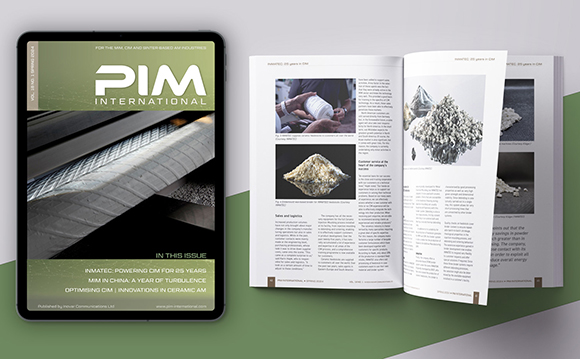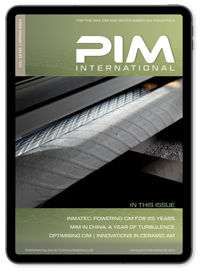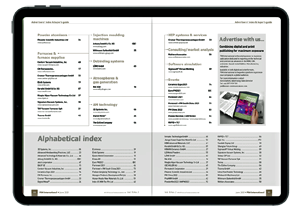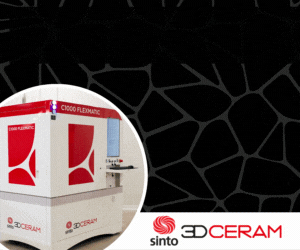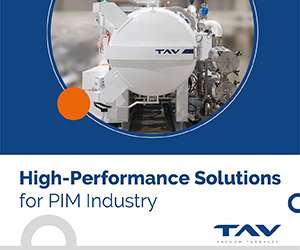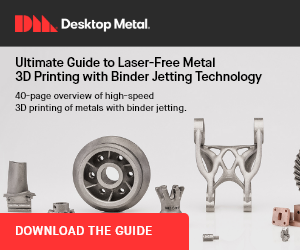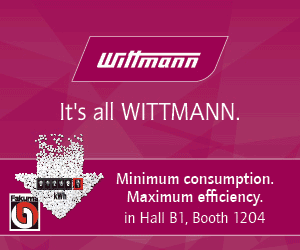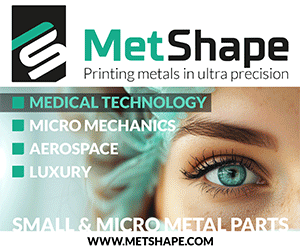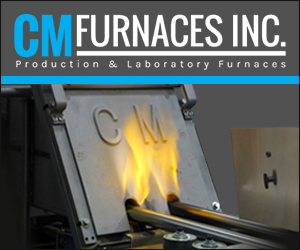Smith Metal Products highlights the capabilities of MIM for advanced medical instruments
October 1, 2018
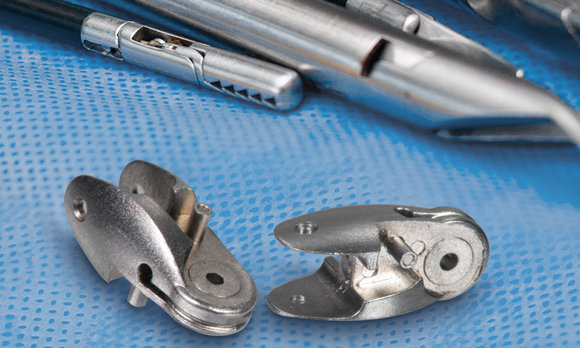
Pivot point components manufactured by Metal Injection Moulding (Courtesy Smith Metal Products)
Smith Metal Products, Center City, Minnesota, USA, has highlighted the benefits of Metal Injection Moulding for the production of critical pivot point components used in advanced medical instruments such as grasping forceps, retractors and needle drivers. Pivot point components provide dexterity in this type of instrument, and can be manufactured to net shape using MIM.
In the provided example (above), Smith Metal Products stated that the stainless steel pivot points produced measured 12.7 x 4.8 x 6.35 mm (0.50 x 0.1875 x 0.25 in) with tolerances of ±.0381 mm (.0015 in). Part features included undercuts, parallel holes and perpendicular shafts. Despite these tight tolerances and complex design features, the company stated that its MIM-produced pivot point components required no machining, thereby reducing both material waste and power consumption.
The pivot point design makes it possible to produce unique two-bladed instruments with specific medical functions such as: grasping fine tissues, suturing with tiny needles, and providing the dexterity to perform surgical, obstetric and dental procedures. These two-bladed instruments are produced in many configurations, with a handle designed to enable manipulating, compressing or grasping motions, each of which is said to be made possible by the design versatility of the pivot point component.
Smith Metal Products manufactures pivot point components by MIM to close tolerances, with extra durability to ensure the instrument functions reliably and with repeatable accuracy.
Thanks to the technology’s capability to produce precise, net-shaped parts quickly, with minimal post-processing, MIM can be used to produce many small precision medical device components. Parts that are suitable for MIM processing include those that have complicated geometries in annual volumes of 10,000 pieces or more and a finished part weight of less than 100 g (3.5 oz). Smith stated that all dimensions of a MIM component should be 7 cm (3 in) or less, and that maximum wall thickness should be 3 mm (0.125 in) or less.




